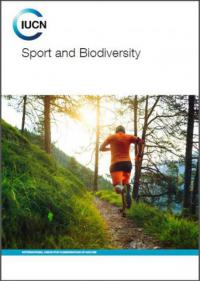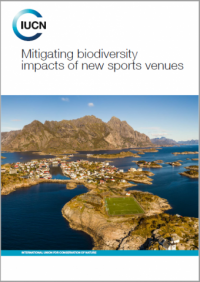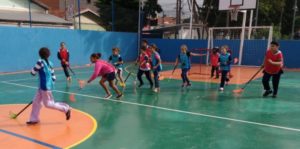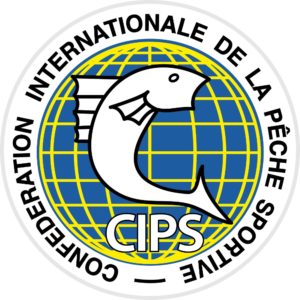
Sport can have significant negative impacts on biodiversity, through the construction and use of sports venues and the staging of sporting events. Understanding and managing the potential negative impacts and opportunities for conservation is vital for ensuring that sports venues and sporting events deliver successfully both from the financial and operational standpoint. This guide is designed to help decision makers understand these potential impacts, and to present options for mitigating them, as well as for maximising opportunities to use sport as a way to promote and enhance biodiversity conservation.





IUCN – Mitigating biodiversity impacts of new sports venues
Wherever a new sports venue is built, or the refurbishment of an existing venue is undertaken, it is likely that biodiversity will be affected by that development, although the significance of impacts on biodiversity – both negative and positive – will vary enormously from sport to sport and location to location. Sports organisations, public authorities and financial institutions as well as those involved in the actual construction and decommissioning of venues all have a role to play in managing the range of impacts that sport venues may have on biodiversity. This includes implementing different measures that can be taken to mitigate any negative impacts and adopting approaches that contribute to biodiversity conservation. Moreover, with careful planning and design, new sports venues and the expansion of existing sites or temporary facilities can, in some cases, even contribute to an overall gain of biodiversity. This report offers in-depth guidance on how to integrate biodiversity considerations in the development of a new venue or a temporary facility, including five checklists covering all aspects from the early planning stage and site selection to the decommissioning.





IFF Kids With Sticks winners presented: Floorball Campinas in Brazil
The Associação Campineira de Floorball (ACFb) – Floorball Campinas was created in 2016 to develop floorball throughout the region of Campinas, São Paulo. Since […]



IUCN – Mitigating biodiversity impacts of sports events
There is growing recognition of the need for sport and sports events to be conducted in socially and environmentally responsible ways and this is reflected in the attitudes of governments, public authorities and regulators. This means that taking a proactive and diligent approach to environmental management is a vital part of the sport sector’s licence to operate as well as growing and sustaining fan bases. Biodiversity conservation should be a key element in any environmentally responsible approach to sports event management. These guidelines focus on the often complex links between biodiversity and sport, and highlight that sports events can also benefit biodiversity. Each event offers an opportunity to raise public awareness of the value of nature and influence attitudes towards biodiversity and its conservation. These guidelines provide an overview of the issues and risks. They also offer help on how to make informed choices in avoiding harmful impacts and achieving positive outcomes. All parties involved in the planning and delivery of sports events are responsible for understanding and managing the potential biodiversity impacts and opportunities to ensure no lasting harm, and preferably a lasting positive legacy.





Sport Sustainability Introduction : How to get started
This module is part of a 12 clips guide created by SportAccord, AISTS, PI, and IOC, to help us understand sustainability as a whole, and look at what it means. Here you can find informations to get started on creating a sustainable sports event. The different topics include management buy-in, funding and financing, education, available resources and engagement. (Video 6/12)


















2018 Sporting Chance Principles on Sport and Human Rights
Sport relies on a rules-based system, fair play, respect and the courage, cohesion, support and goodwill of society in all its facets, including athletes, fans, workers, volunteers and local communities, as well as governments, businesses large and small, the media and sports bodies. The foundational principles of the world’s preeminent sports bodies speak to universal humanitarian values, harmony among nations, solidarity and fair play, the preservation of human dignity, and commitment to non-discrimination. These values have much in common with international human rights instruments, principles and standards. Recognising that there is a generation of work to be done to fully align the world of sport with the fundamental principles of human dignity, human rights, and labour rights; the Advisory Council of the Centre for Sport and Human Rights are committed to working towards the fulfilment of these Sporting Chance Principles.






UN Women is the United Nations entity dedicated to gender equality and the empowerment of women. A global champion for women and girls, UN Women was established to accelerate progress on meeting their needs worldwide. In partnerhip with the International Olympic Committee, UN Women launched the Sport or Generation Equality initiative which aims to advance gender equality and the empowerment of women and girls in and through sport. The sports movement is invited to join the Initiative to accelerate progress on a set of common principles and aligned objectives that will harness the power of sport in making gender equality a reality within and through sport. Other initiatives have been taken by UN Women in collaboration with various sport governing bodies. The most relevant can be found here : https://www.unwomen.org/en/search-results?keywords=sport


The Australian Conservation Foundation and the Monash Climate Change Communication Research Hub conducted a research on the impact of extreme heat on Australian cricket, and the opportunities to take effective climate actions



In the aim of pursuing the objective of the sharks preservation, the project has set out different kind of activities. Sometimes, they concerned concrete actions of preservation that entailed the involvement and the cooperation of sport anglers and professional fishermen, other times they were however aimed at raising the big public’s awareness and sensibility regarding the importance of sharks in the aquatic ecosystems. The complex of actions raised by the project, which preview, among the others, training activities with seminars and workshops and the use of different kind of communication, like permanent and itinerant exhibitions and a web site, is devoted to preserve sharks and other cartilaginous species and to cancel from the collective imagination the idea of sharks as “men eater machines”, which was alimented by many books and commercial movies.


E-book, developed by Right Hub, with good practices of the motorsport sector about manufacturing, fundraising, donation, supplying devices of protection and services. This e-book is divided according to the different stakeholders involved: organizers, teams, racers, sponsors, suppliers, partners, racetracks and car and motorcycle companies engaged in racing.


